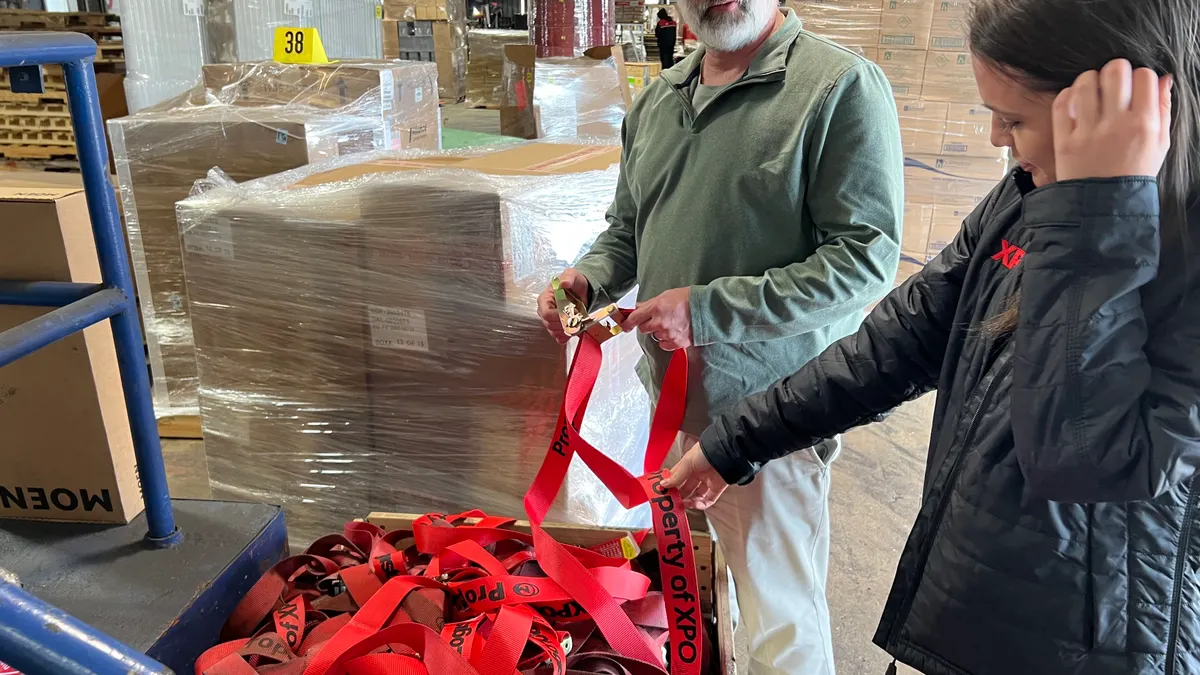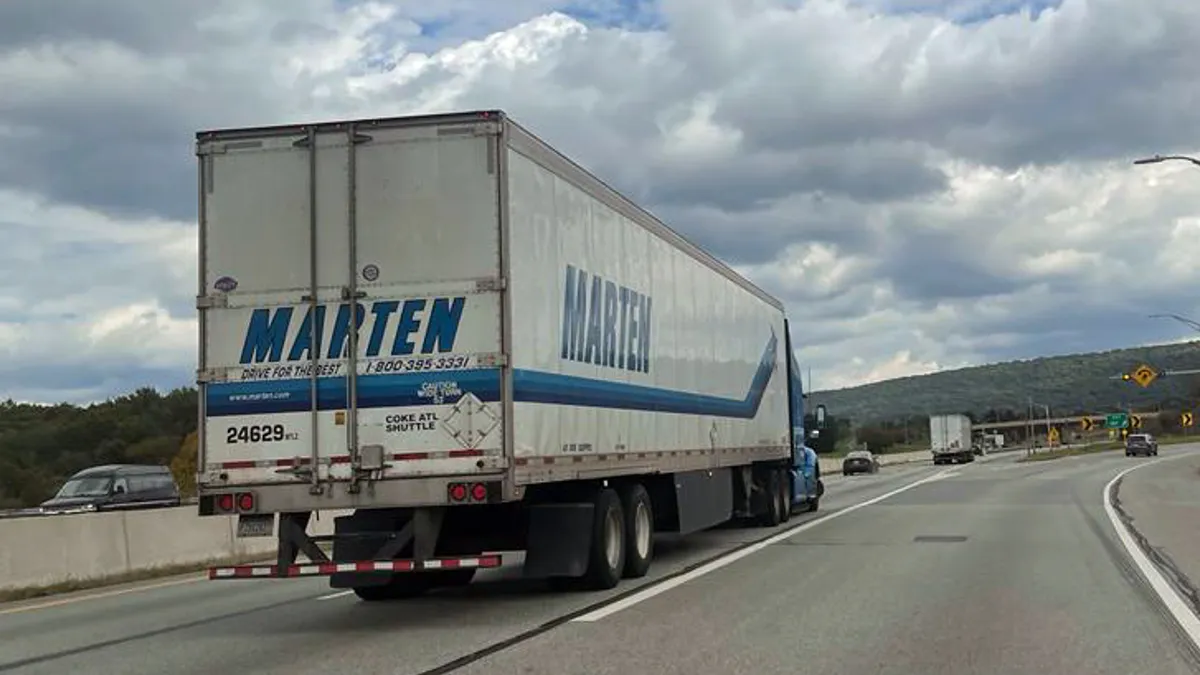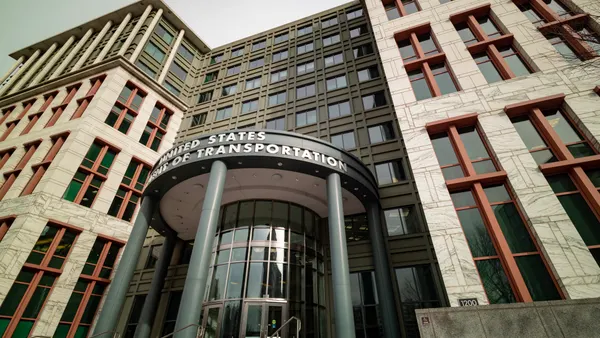Many consider "selling" more art than science. And though art is considered a discipline, it can be broadly undisciplined.
Undisciplined art might be OK for an interpretive dance, a paint-splattered canvas or a sculpture composed of oddly connected mannequin parts. But, in the field of transportation sales, undisciplined approaches to the promotion of your company to existing and prospective customers is a huge obstacle to growth.
I spent three years of my transportation career working for "the dark side," as some would refer to consultancies. And, during those three years of managing and advising client's supply chain departments, I had the distinct pleasure of seeing, firsthand, a lot of undisciplined selling techniques and interpretive approaches to the selling process.
Unless your product or service is in a one-of-a-kind category, you face stiff and growing competition that requires a productive, effective and disciplined sales organization if you hope to distinguish your company and succeed.
Transport companies need to apply the art of discipline, to discipline the art of selling.
Cut the carp
I am defining "sales discipline" as the ability to follow and execute a specific and logical sales methodology and do so consistently.
If you had five of your top sales professionals present to you as if you were a new prospect, you'd very likely experience five presentations that are quite different. Sales professionals develop their own "style" when it comes to selling.
Styles are usually based on what feels personally comfortable and has the appearance of being effective. So, a salesperson may get many commitments from customers/prospects to try your service at some point. But they rarely attain the revenue dollars from those commitments, which were only expressed to end the meeting more quickly.
I can't tell you how many transportation buyers have admitted this to me.
It probably comes as no surprise that sales professionals don't particularly care for any sort of structured methodology. If you want proof of that, ask them how much they enjoy filling out an expense report. Carp, carp, carp!
Transport companies need to apply the art of discipline, to discipline the art of selling.

There are many sales "programs" on the market, and your company has likely introduced one or two to its sales department. Based on my experience and observation, I've not seen one that actually became ingrained in a company's processes and culture (except for one that I'll mention later).
I can only imagine that, because managing a group of sales professionals is often likened to herding cats, the good efforts and good intentions of getting everyone selling from the same book are eventually abandoned. This is an awfully valuable resource that's being denied tools and direction. But, it happens.
I ran into this Winston Churchill quote that is perhaps appropriate at this juncture:
"Personally, I'm always ready to learn, although I do not always like being taught."
If you are thinking about mentioning the potential establishment of a structured sales methodology to your sales professionals, I'd suggest first collecting their car keys. Just its mere mention will have them steering to the nearest cliff.
5 things I learned from structure
I got that deer-in-the-headlight, I'd-rather-poke-my eye-out, give-me-something-to throw look from many of our sales professionals when I announced our intention to add structure to our processes during my time at American Freightways.
Not to be deterred by the obvious animosity (said with a little tongue in cheek), we adopted a program called Map for Action. I've mentioned this before in an earlier column — Ed Feeney of Feeney Associates introduced an excellent sales education product in 1966 that is based on scientific behavior modification techniques.
I know that sounds ominous, but it actually doesn't involve needles or electric shocks. After reviewing his product in 1993, I found it hard to understand why it hadn't been adopted as the industry gold standard.
His whole design is so imbued with common sense and logic that once you'd read it, you'll feel compelled to do that V8 vegetable juice head thump and exclaim, "We should've been teaching Map!"
Map for Action is an eight-course feast of a sales methodology — soup to nuts. I use the dining analogy because, like a multi-course meal, each Map course "serving" builds to the next, with the flavor from the previous course melding perfectly.
We discovered some interesting things during education and implementation:
- Map for Action was a more practical approach than we first thought, as the methodology follows along a continuum, one step leading to the next.
- Our sales professionals quickly grasped the simple, yet effective, concepts.
- Many of the sales professionals' objections faded, once they understood that this structured methodology neither impeded their style nor imposed upon it.
- Sales cycles were reduced and successes were more frequent. This created enthusiasm that led to even more successes.
- Sales professionals frequently reported a boost to their motivation, morale and confidence.
I could go on and on about our learnings. But, let it suffice to say that this structured methodology instilled the discipline in our sales process that allowed us more success than we would have realized, had we allowed our sales professionals to continue to free-will-it in the marketplace.
Every executive should undertake a periodic review of their sales processes, regardless of their revenue levels or profitability. And, from my experience and observation, a structured sales methodology that covers all aspects of the sales continuum — and one that has a coaching component to ensure sustainability — will come the closest to ensuring disciplined success.
We happened to choose Map For Action, and it worked for us. Find one that's a good fit for your company.
Lanny Fleming began his career with Roadway Express in 1977. He was with American Freightways and FedEx Freight for 20 years, and UPS Freight for six. Views don't necessarily represent those of Transport Dive.


















